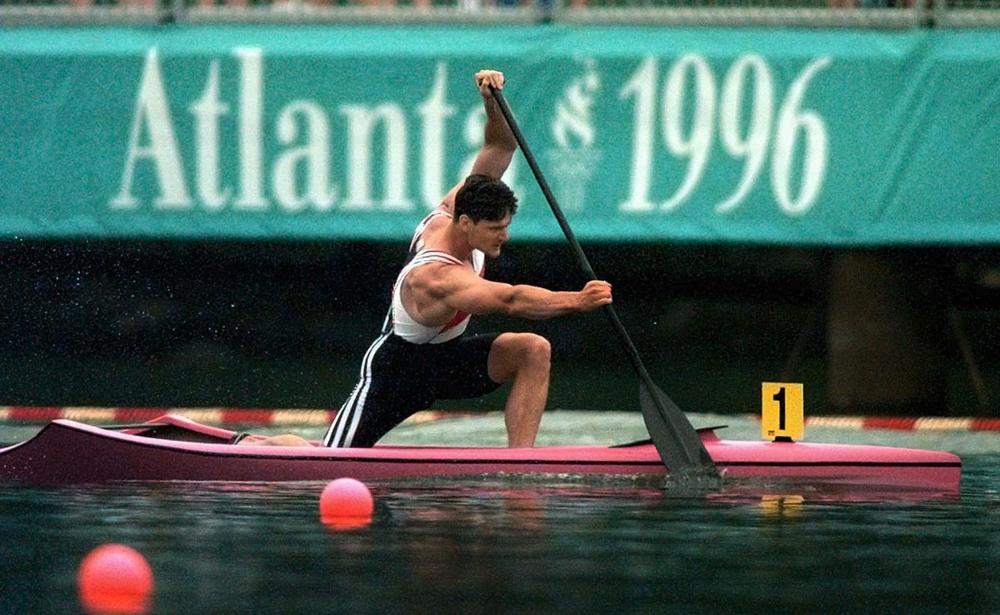Section Branding
Header Content
Oral History Project To Capture Memories Of Lake Lanier
Primary Content
Some longtime Georgia residents may remember the building of Lake Lanier.
A new oral history project starting Monday at the Forsyth County Public Library system seeks to capture those memories.
Today, nearly 12 million recreation-seekers flock to Lake Lanier north of Atlanta for boating, fishing, swimming and camping.
But up until the 1950s, the lake’s more than 50 square miles were farms, cemeteries, churches, homes and forests.
The federal government flooded the area in 1956 to create the man-made reservoir and dam.
Leading the oral history project is Joan Dudzinski, Information Services Supervisor of the Forsyth County Public Library Cumming Branch.
GPB's Rickey Bevington interviewed Dudzinski about the project and what they're hoping to learn.
This conversation has been edited for clarity and conciseness.
Rickey Bevington: Why did you decide to invite people to tell their stories about Lake Lanier?
Joan Dudzinski: We wanted to choose something local where it's a community oral history project. We thought one of the most central items in the area would be Lake Lanier.
There's a lot of history to it as it was formed in the 1950s. We're ideally hoping to get some people that were here while it was being made and can speak to that.
Bevington: When people come into the library and they want to tell a story, how does that work?
Dudzinski: They can either drop in or call any of our branches and set up a time. The interview, itself, is very short, maybe 10 minutes or so. It all depends on how much they have to tell us, really. We just arrange a time for them to come in, and there's a little bit of paperwork.
We have to get permission to record them and to turn over the rights to be able to publish the interviews on our website.
But once the formality of the paperwork is done, we just sit there and have a casual conversation similar to this and let them tell us what they know.
Bevington: What specifically are you going to be asking them?
Dudzinski: We're going to start out broad: What is your connection to the lake? When were you first aware of it? We'll ask them if they have history in the area, specifically if they were here when it was being built.
And if not, we'll ask them what special memories they have. We call this Forsyth Remembers, and this is Lake Lanier Memories for this year. So [things like] if they maybe got married on the lake or were part of a fishing tournament or any other big event that they participated around the lake. We had the part of the Olympics here back in 1996.
Bevington: So it doesn't just have to be people who remember the building of the lake, it can be any memories of Lake Lanier?
Dudzinski: Right. We wanted to open it up to all ages so that anyone could participate [because] the program last year was a certain age group that would remember the moon landing.
This year with the lake, ideally, we want to hear the stories about the lake while the people are still around to share those stories and can let other people understand how the area was impacted by it.
But if someone else has memories of the lake they wish to share, we'd want to be able to collect those as well.
Bevington: I understand that there were some homes that were displaced. [There were] some families that had to move. A highway, some churches and at least one cemetery was submerged. What do you hope to learn about that through this project?
Dudzinski: There were quite a few things that were buried. [There were] a few things moved ahead of time. We just want to know if it was a family or farm that had to move, what was the process in which they were offered compensation for it? Where did they move? How were either their neighbors and friends impacted by it?
A lot of cemeteries, like you said, were removed. Were they able to move? A lot of these were small family cemeteries. So they were able to move them, but others were not.
So you just want to see what the impact was and how the people felt at the time and how they feel now that the lake has become so popular, both for recreation and, as you said, it's utilitarian purposes.



